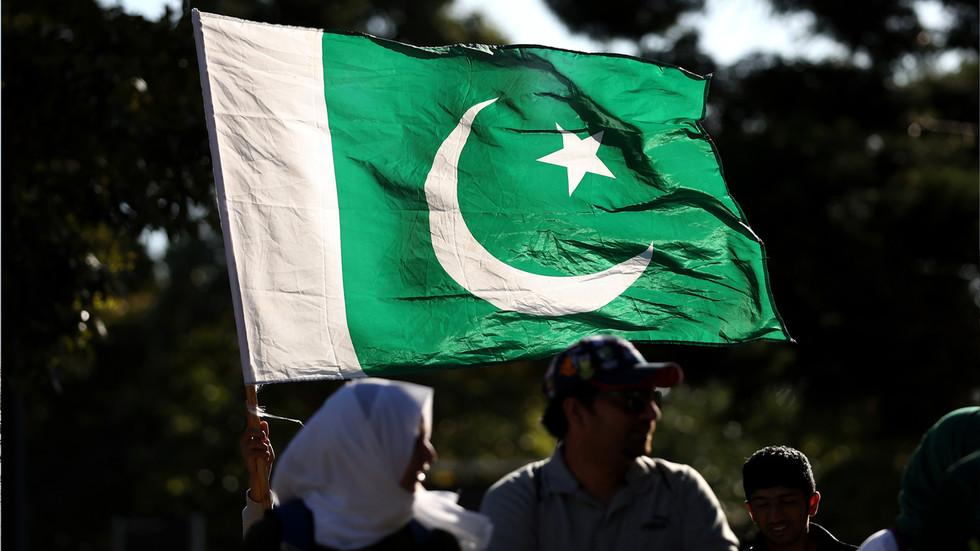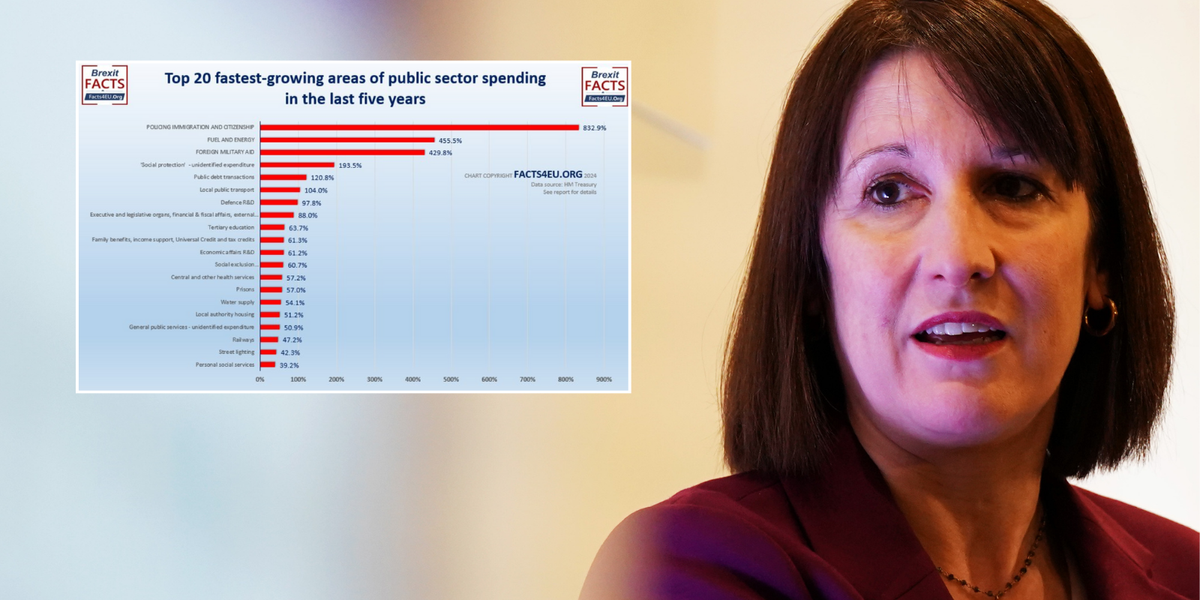 When it comes to national security, appeasement is not an option. Bribing aggressors only finances their militaries for attacks on the West in the future. Israel's approach to combating terrorism has always been characterized by thoroughness and determination -- for which is usually put through the tortures of hell by the very countries it is working to save. Pictured: Iranian President Masoud Pezeshkian and commander of the Islamic Revolutionary Guard Corps' Aerospace Force Amir Ali Hajizadeh look on as a Jihad missile is displayed at a parade in Tehran on September 21, 2024. (Photo by Atta Kenare/AFP via Getty Images)
When it comes to national security, appeasement is not an option. Bribing aggressors only finances their militaries for attacks on the West in the future. Israel's approach to combating terrorism has always been characterized by thoroughness and determination -- for which is usually put through the tortures of hell by the very countries it is working to save. Pictured: Iranian President Masoud Pezeshkian and commander of the Islamic Revolutionary Guard Corps' Aerospace Force Amir Ali Hajizadeh look on as a Jihad missile is displayed at a parade in Tehran on September 21, 2024. (Photo by Atta Kenare/AFP via Getty Images)
After Hamas carried out its horrific October 7, 2023 massacre by invading Israel, murdering hundreds of people and kidnapping individuals from various countries, Israel reached a breaking point. This act of terrorism ignited a wave of decisive actions across the Middle East that catalyzed remarkable developments, aimed at countering and eliminating terror networks.
For decades, the region has been plagued by violence and instability, but Israel's response marked a significant turning point, showcasing its resolve to confront terrorism head-on and help usher in a new era of security.
Israel has consistently demonstrated its commitment to thorough and resolute action. When it comes to national security, appeasement is not an option. Bribing aggressors only finances their militaries for attacks on the West in the future. Israel's approach to combating terrorism has always been characterized by thoroughness and determination -- for which is usually put through the tortures of hell by the very countries it is working to save.
Refusing to leave any task incomplete, Israel, in its counteroffensive against Hamas, targeted and significantly diminished the terrorist group's military capabilities and crippled its ability to function effectively. The Iranian regime, a staunch supporter of Hamas, reacted by activating other proxies, Hezbollah in Lebanon and the Houthis in Yemen, to attack Israel. In an unprecedented move, Iran also launched ballistic missiles from Iranian soil into Israel, thereby escalating the conflict.
Iran's regime, however, underestimated Israel's resilience. As a Persian proverb says, "Iran was playing with the lion's tail." The consequences were severe.
Israel's broader objective appears to be not merely to respond to isolated acts of terrorism, but to dismantle the infrastructure of terror in the region. With a vision of ultimately fostering peace, harmony, security and prosperity throughout the region, as in the Abraham Accords, Israel expanded its military operations beyond Hamas. It launched targeted strikes against Hezbollah, significantly weakening its military capabilities, and extended its efforts to Syria, striking Iranian military bases and weapons-supply chains. These decisive actions underscored Israel's commitment to reshaping the Middle East into a region free of the grip of terror.
One of the most extraordinary developments spurred by Israel's actions was the unexpected collapse of Bashar al-Assad's regime in Syria. Within a week of launching an offensive last month, armed rebel groups achieved what for decades had seemed impossible: the conquest of key cities and the end of Assad's reign. This monumental shift not only dealt a devastating blow to Iran's regional ambitions but also signaled the possibility of a brighter future for the region.
The ramifications for Iran were profound. Losing Syria, one of its closest allies, severely weakened the regime's ability to project power and support its proxy Hezbollah in Lebanon.
In just over a year, Israel has succeeded in reducing Iran's regional influence, effectively dismantling or weakening the pillars of its strategy—the Syrian regime, Hezbollah, and Hamas. This achievement is unparalleled. It disrupted decades of Iran's poisonous dominance in the region. Thanks to Israel's strategic and calculated actions, Iran's regime, which had survived Western sanctions and interventions since the 1979 Islamic Revolution, now faces unprecedented challenges to its survival, which cannot come to an end soon enough.
Israel's efforts to eradicate terrorism and destabilize its sources have largely been accomplished without substantial assistance from Western democracies. It is now time for the West to step up and support Israel and most of the Iranian people in addressing the root of the problem: the Iranian regime. This final step requires decisive action to dismantle Iran's nuclear program and empower the Iranian people to achieve freedom. Make Persia Great Again!
So long as Iran's regime remains in power, brutalizing its people and making plans for global expansion, there can be no chance for peace in the region. Removing the regime, often described as the "mother of all terrorism" and the godfather of terrorist groups, would bring lasting security and prosperity to the Middle East and beyond. With the regime's collapse, its proxies would be starved of funding and weaponry, paving the way for a more peaceful Middle East. One could then set about subduing Turkey and its terrorist proxies in Syria.
Israel's contributions to global peace and the fight against terrorism are unparalleled. This small nation has accomplished what many larger powers have failed to do: confronting evil, dismantling terror networks, and advocating for freedom and security. The world owes Israel an unpayable debt of gratitude for its unwavering courage and commitment to these ideals.
It is time for Western nations to align with Israel, offer their full support, and take the necessary steps to ensure a safer, more secure future for all. Bravo, Israel! Thank you for your remarkable efforts in making the world a safer, freer, better place.
Dr. Majid Rafizadeh, is a scholar, strategist and advisor, Harvard-educated analyst, political scientist, and board member of Harvard International Review. He has authored several books on the US Foreign Policy and Islam. He can be reached at Dr.Rafizadeh@Post.Harvard.Edu

 By Gatestone Institute | Created at 2024-12-21 10:06:08 | Updated at 2024-12-21 14:30:34
4 hours ago
By Gatestone Institute | Created at 2024-12-21 10:06:08 | Updated at 2024-12-21 14:30:34
4 hours ago








